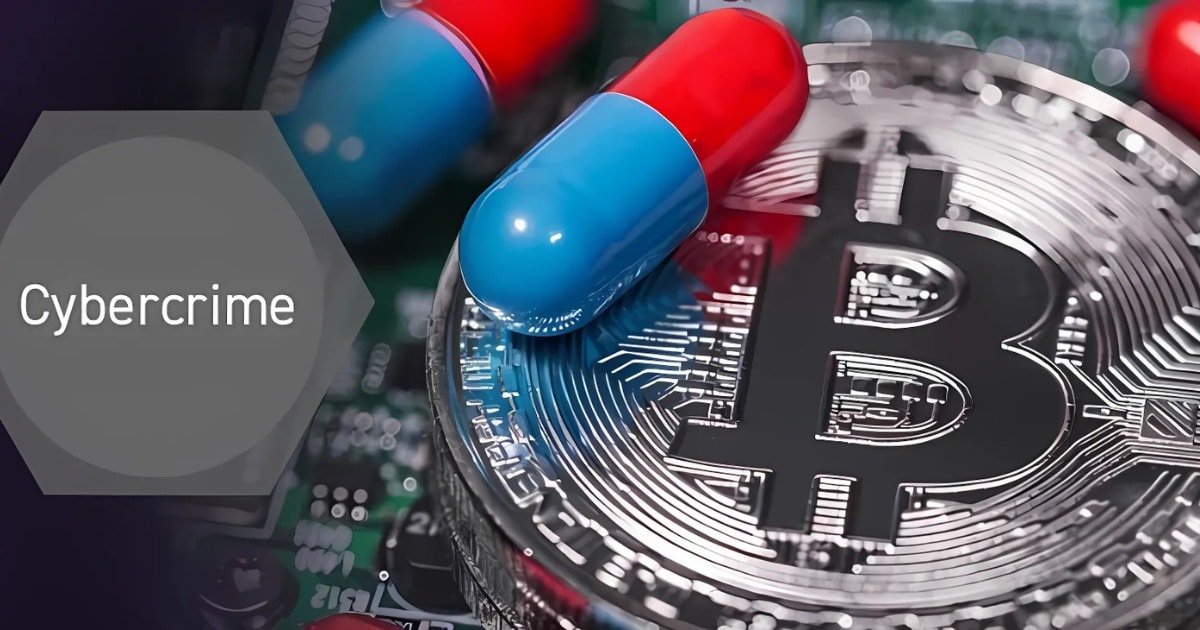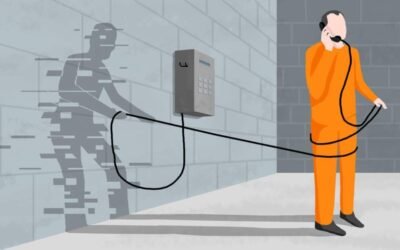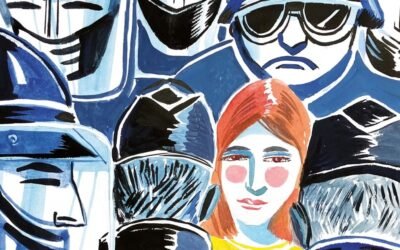The last decade has seen a significant rise in global drug production. In 2022, 2700 tons of cocaine were produced worldwide. This was a 20% increase compared to 2021. The digitization of drug trading has expanded its production. The widespread use of smartphones has only aided in this development. The rapid increase in messaging apps has also led to profound changes. Drug production, distribution, and consumption have increased considerably. Drug traffickers have been quick to take advantage of digital technologies. The criminal exploitation of online spaces has grown at breakneck speed. This article explores how encrypted apps facilitate the digital drug trade.
Encrypted Apps: The New Battleground
There has been a notable rise in the use of encrypted apps in drug trafficking. Encrypted Apps, like WhatsApp, Telegram, and Signal, have become increasingly popular. Since they are easy to use and grant users anonymity, they have become drug dealers’ means of operation. In addition, by operating entirely through smartphones, the way drugs have been delivered has changed forever. To understand how these apps facilitate drug trade, we will use the example of Telegram.
Telegram communities offer a wide variety of substances. They also speed up drug delivery and create the perception that police detection is unlikely. Furthermore, the app promotes drug specialization among sellers. The encrypted messaging features of these apps actively support the drug trade. Telegram communities are created by someone who works as an organizer. He is responsible for setting up the rules of the game, regulating membership, and monitoring compliance. The organizer also sanctions undesirable behavior. Most importantly, however, he is not the owner of the drugs being sold. In this manner, Telegram operates as a partial organization.
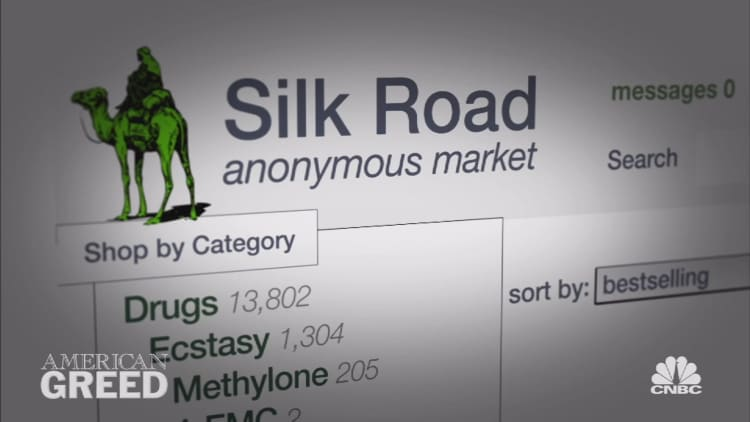
Source: CNBC
Partial organizations differ from complete organizations in terms of ownership rights. In partial organizations, organizers have no claim in the seller’s property rights or hierarchy. Such organizations are capable of hosting many participants regardless. For drug sellers, the encryption technology makes detection unlikely. It also provides effortless access to drugs. Encrypted messaging makes secret communication between sellers and buyers easier. There is reasonable protection from law enforcement agencies. However, encrypted apps only allow for virtual transactions. Physical delivery still relies on traditional methods. Usually, illegal consignments are shipped through postal or courier services. This marketing technique is commonly known as the App-mediated drug trade. Young Pakistanis, especially university students in major cities, increasingly purchase narcotics through encrypted communication.
The Rise of Narco-Tech and Cryptocurrency
Use of cryptocurrency in the drug trade is not yet mainstream in Pakistan. Nevertheless, drug traffickers have increasingly utilized it to hide their money trails. Cryptocurrencies, like Bitcoin transactions, can largely bypass the traditional banking system and legal oversight. These transactions also make the cross-border flow of funds inaccessible to the Federal Investigation Agency (FIA). When used together with VPNs, narco networks can conceal their trade dealings from cybercrime units. This has made law enforcement for authorities much harder.
The dark web connects Pakistani buyers with sellers. The dark web has become a parallel market to traditional drug dealing. These clandestine platforms allow for drugs to be sold and bought anonymously. In 2024, darknet marketplaces generated over $1.7 billion in cryptocurrency-enabled drug transactions. This was a 20% increase from last year. Dark web and encrypted apps are not only safer platforms for drug dealers but highly lucrative as well.
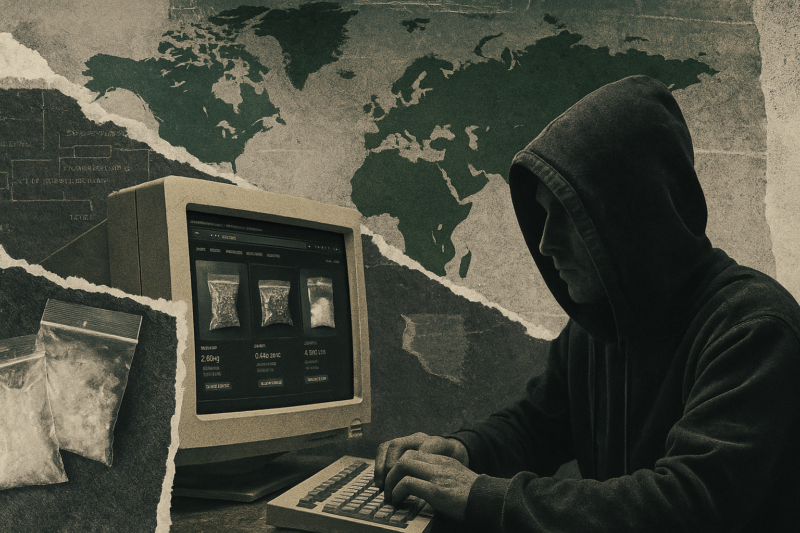
Source: Global Initiative
Law Enforcement Challenges in Pakistan
Digital drug trading makes detection elusive. The Anti-Narcotics Force (ANF) and FIA are confronted with unprecedented challenges. Traditional policing methods are useless. Raids, informant networks, and checkpoints do little to check the online drug trade. Pakistan’s technical capacity is also severely lacking. The country’s cyber-expertise and cross-border intelligence sharing remain limited. The lack of digital evidence due to encryption impedes prosecution efforts. The digital drug trade is almost invisible. The dealings between buyers and sellers leave no physical trace. Thus, there is no trail to chase. Since there are no specialized training or resources for cyber-narcotics investigations in Pakistan, law enforcement is limited in what it can do. Meanwhile, though, narco-trade and strategies will continue to evolve.
What does this mean for Pakistan’s Youth and Security?
The digital drug trade is not merely a criminal issue. It is a social crisis that directly affects public health. This easy and undetectable access to drugs can fuel addiction in Pakistan’s youth. University campuses are particularly vulnerable. The online drug trade has normalized drug culture. This is a dire emergency for the country. Not only can it lead to health consequences, but it also exposes the youth to organized crime recruitment. On a broader scale, drug trafficking is linked to terror funding and money laundering. If Pakistan does not take action soon, its internal security will be at risk.
Conclusion
The narcotics trade has surpassed traditional dealing methods. It no longer relies on back-alley negotiations or smuggling routes. Instead, it has infiltrated the digital sphere. Encrypted messaging apps, social media, and cryptocurrencies all facilitate drug trade. This reflects a dangerous intersection between crime and technology. Due to the unprecedented nature of the evolving crime, law enforcement is struggling. The usual measures are not sufficient to deal with this rising threat. Pakistan needs to recognize this reality soon. Only by adopting robust cyber strategies and preventive measures can narco-networks be checked. To counter risks to public health and the social fabric, imminent action is required.
You May Like To Read: Green Terrorism in Pakistan: How Environmental Crimes are Funding Terrorism

